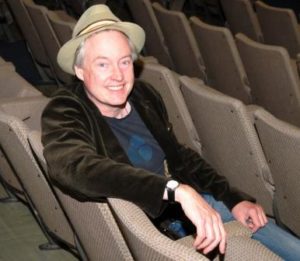 Cultural and educational institutions such as universities have an obligation to participate in debates over national culture and identity, according to Dr Julian Meyrick, newly-appointed Strategic Professor Creative Arts at Flinders University.
Cultural and educational institutions such as universities have an obligation to participate in debates over national culture and identity, according to Dr Julian Meyrick, newly-appointed Strategic Professor Creative Arts at Flinders University.
In his first interview with Flinders Indaily, Professor Meyrick (pictured) said universities were best placed to “slow down” and “give room to” the processes of democratic participation that were critical to a measured consideration of the state of Australian culture.
“The notion of what Australian culture is – what you feel you are defending or opening up – is absolutely crucial to the life of the nation, politically speaking, but also to what artists think they’re contributing,” Professor Meyrick, a specialist in cultural policy and history and accomplished, award-winning theatre director, said.
“If you care about culture, if you care about art of all kinds, then you end up looking at larger questions: what do we as a country represent, where are we heading?” he said.
The son of an English father and Australian mother, Professor Meyrick was born in England and studied politics and economics at Exeter University. He studied theatre directing in the USA on scholarship and went on to become associate director and literary manager at Melbourne Theatre Company for six years. He has a PhD in the history of Australian theatre and undertook postdoctoral research at La Trobe University.
Citing as examples the diverse ethnic make-up of Australian society and the controversies surrounding book and foreign artist importation, Professor Meyrick said the complexity of Australian culture today calls for greater reflection on the issues than social and mainstream media can provide.
“Social media have a very extensive communicative reach but there’s not much of a reflective component in them. They’re great at raising issues but not so great at prosecuting them,” he said.
“Australia faces complex problems which require considerable sounding out. There are controversial issues about what we retain and what we supersede in our culture. If you bring in a high proportion of people from immigrant cultures, for example, that’s going to affect your core culture – there’s no doubt about it. And you have to manage that.
“I think it is incumbent on academics in my field to have a dialogue with the general public to elucidate these issues. It’s not something that’s going to happen naturally in the press.”
Professor Meyrick, who is based in the School of Humanities, is himself no stranger to controversy. A regular media commentator on matters of cultural policy, his recent article in the Fairfax press took to task Australia’s miserly attitude to cultural funding in the wake of the Olympic Games.
“My beef really wasn’t so much with the Olympics but with competitive sport as the only way to frame Australia, narratively-speaking. It is told as a very simple story but you look out the window, you don’t see a simple story. You see a very complicated culture, made up of people who come from all parts of the globe, who speak many different languages, who have many different inheritances. That is our culture. Contracting it into a fairy tale about winning is not helpful.”
As a practitioner and academic, Professor Meyrick believes he is well placed to not only stimulate public debate but to also support the link between cultural policy and practice.
“I’m a representative figure, I guess, in terms of theatre in particular,” he said.
“I’ve run a small theatre company; I’ve been part of a larger theatre company. I’ve put in for endless grants; I’ve worked with city councils, state governments, and the Australia Council. I’ve sat on the Federal Government’s Creative Australia Advisory Group and I’ve sat on the board of very small cultural organisations.
“I’ve seen a fair bit of how culture works in a practical sense and I’ve had the opportunity to learn how it is configured in an intellectual and academic sense.”

